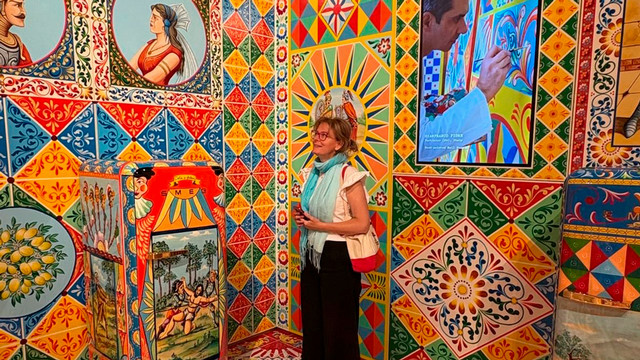University of Richmond faculty enhance their expertise through research
Research & Innovation
From campus labs to fashion exhibits in Paris to meetings with leaders in Malawi, UR professors advance their fields of study and provide the latest findings to their students.
Richmond faculty are committed to continually increasing their own knowledge, often going beyond the classroom — and even beyond the country — to do so. Whether through research, travel, or academic collaboration, many use summers and other academic breaks to deepen their expertise and stay at the forefront of their fields. Here are a few examples of their recent endeavors.
Lidia Radi, Professor of Languages, Literatures, and Cultures, School of Arts & Sciences
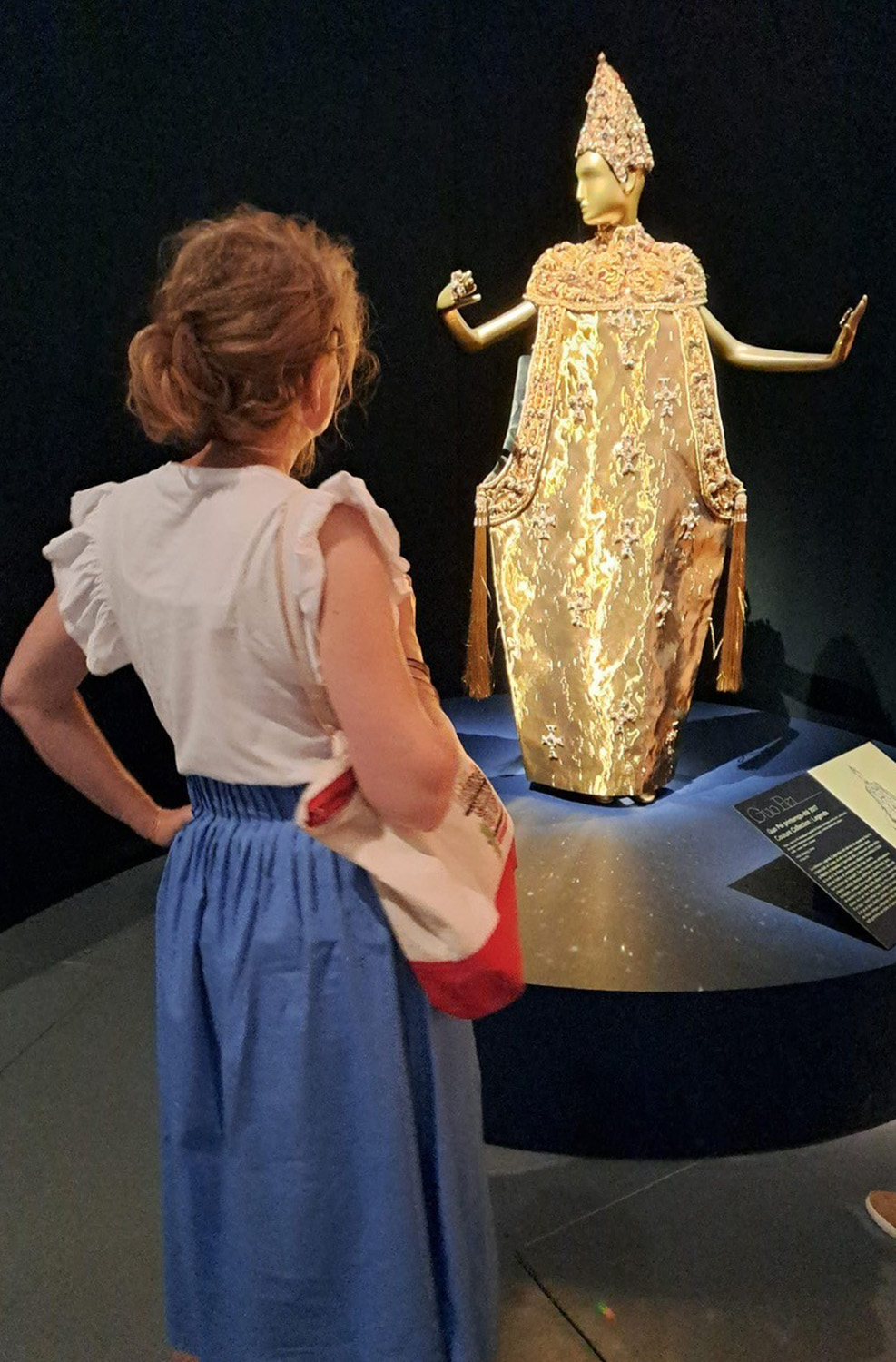
“In my courses, I want students to engage with fashion as an art form, a cultural mirror, and a means of self-discovery,” said Professor Lidia Radi.
Radi, a scholar of early modern French studies and contemporary Italian literature, traveled to Europe this summer both for her book research, and to visit eight exhibits dedicated to fashion, ranging from haute couture to broader explorations of style and culture. She used the excursion as inspiration to develop two 400-level classes that she will teach in the spring — Chic et Choc: Réflexions sur la Mode and Italy on the Runway: Moda, Identità e Società.
“As part of my preparation, I immersed myself in a series of extraordinary fashion exhibits in Paris and Rome,” Radi said. “High fashion, which will be a central focus in my courses, is celebrated for its artistry, craftsmanship, and cultural resonance. Yet I will also encourage students to consider fashion more broadly, as a reflection of everyday life and identity.”
In Rome, Dolce & Gabbana’s “From the Heart to the Hands” exhibit at the Palazzo delle Esposizioni displayed the Italian fashion house’s luxury creations as if they were a set in a play. “Their garments, rich with religious iconography, Mediterranean folklore, and operatic spectacle, embodied fashion as theater,” she said.
At the Louvre, Radi observed a Fendi dress that echoed the texture and colors of a nearby Renaissance tapestry and a gold Chanel necklace at home near medieval relics at the “Objets d’art, objets de mode” exhibit in Paris. It was the first time in the museum’s 232-year history that it paired haute couture garments with objects of decorative art.
“I sometimes had to look twice. Was that purse by Dolce & Gabbana or an artifact from the 12th century? Was that necklace Chanel or a sacred object from the Middle Ages?” she said. “The exhibit blurred the line between objects of art and objects of fashion, revealing how both spring from craftsmanship, imagination, and cultural vision.”
Radi's spring courses will explore various career options available to students interested in the fashion industry, including design, marketing, journalism, and curation. “We will also examine fashion’s history and how style can emerge from self-knowledge — an understanding of one’s body, culture, and the traditions that shape us.”
Vladimir Chlouba, assistant professor of Leadership Studies, Jepson School
Professor Vladimir Chlouba visited Malawi for three weeks this summer to conduct a census of the country’s traditional leaders. The collaborative project included two faculty members from The Ohio State University and Boston College. The team worked with translators proficient in Malawian languages to conduct the interviews.
“This was the first census of traditional authorities in Malawi. We consider this a big step forward in studying traditional leadership precisely because we are the first scholars collecting this sort of data in Malawi,” Chlouba said.
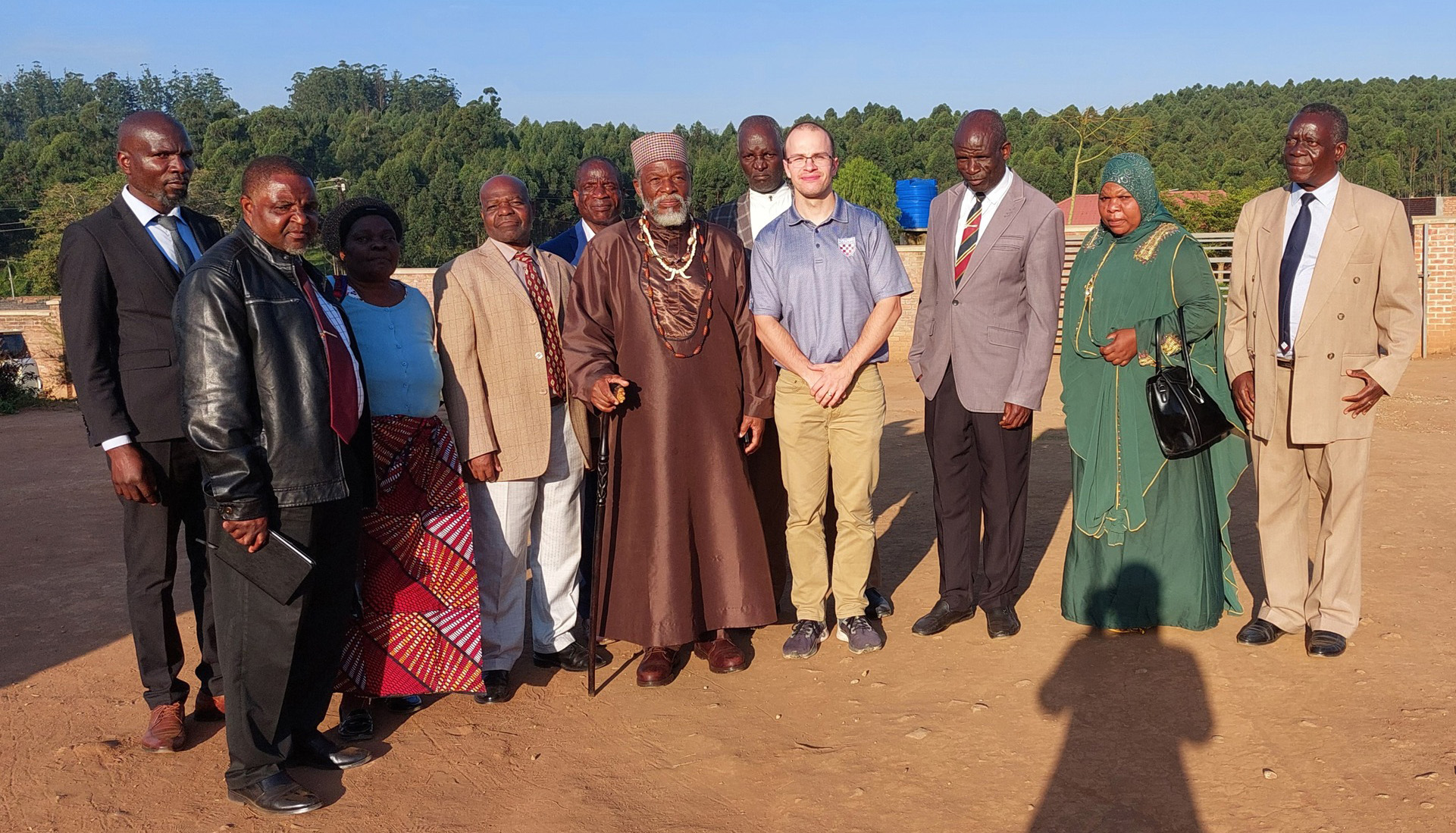
The collaborators are interested in understanding how these traditional institutions differ, including whether their leaders are elected, how frequently they meet with their constituents, and what aspects of local governance they handle.
“One thing that surprised me was the variety of ways in which Malawian chiefs are selected. The conventional wisdom holds that chieftaincy is strictly hereditary and that ordinary people have little say in who becomes their leader. Our findings suggest that this view is overly simplistic,” he said.
Funding from the other two colleges funded data collection efforts, while Chlouba’s travel and stay in Malawi were provided by a Jepson International Research Grant.
Chlouba has also conducted research in Botswana, Namibia, and Zambia.
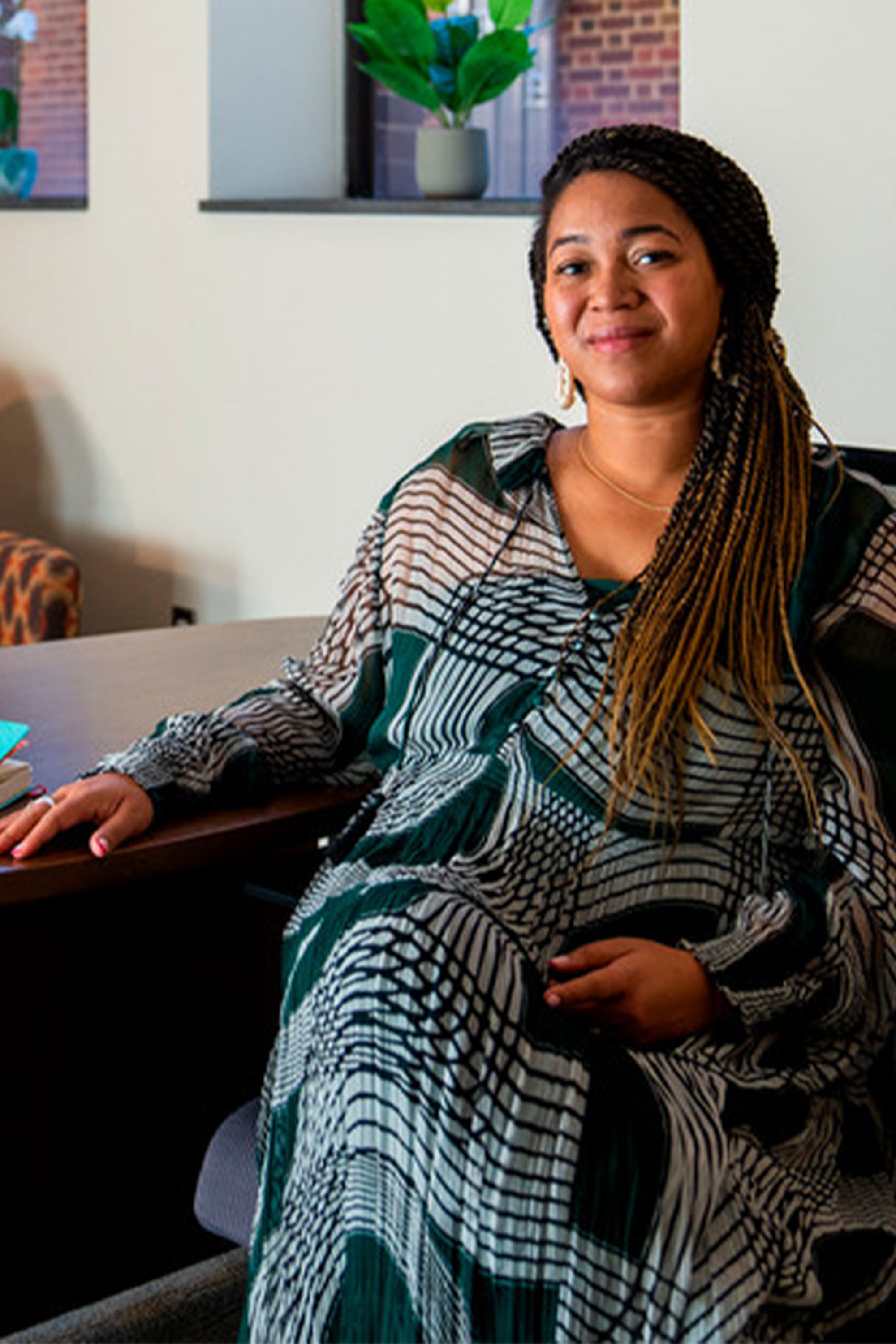
Janelle Peifer, associate professor of Psychology, School of Arts & Sciences
In May, Janelle Peifer received the 2025 Innovative Research in International Education Award for her article, “Developmental Pathways to Intercultural Competence in College Students,” published in the Journal of Studies in International Education. The award honors groundbreaking research that significantly advances the field of international education.
The research investigates how college students develop intercultural competence — a critical skill in an increasingly globalized world — and provides insights into how institutions can better support this development through intentional programming and curriculum creation. This includes examining short-term study abroad programs and assessing global learning. In the past, Peifer has traveled with students to conduct community-engaged research in Panama, Peru, New Zealand, and Nicaragua.
“This recognition affirms the importance of research that bridges classroom learning with global engagement,” said Peifer. “I’m honored to contribute to a deeper understanding of how students grow through international education experiences.”
As part of the award, she will be invited to participate in professional development and publication opportunities, further increasing the impact of her research. Peifer will also serve as an honorary member of the 2026 Award Selection Committee, assisting in identifying future leaders in international education research.
Peifer is a licensed clinical psychologist whose expertise includes trauma, identity, resilience, and parasocial relationships.
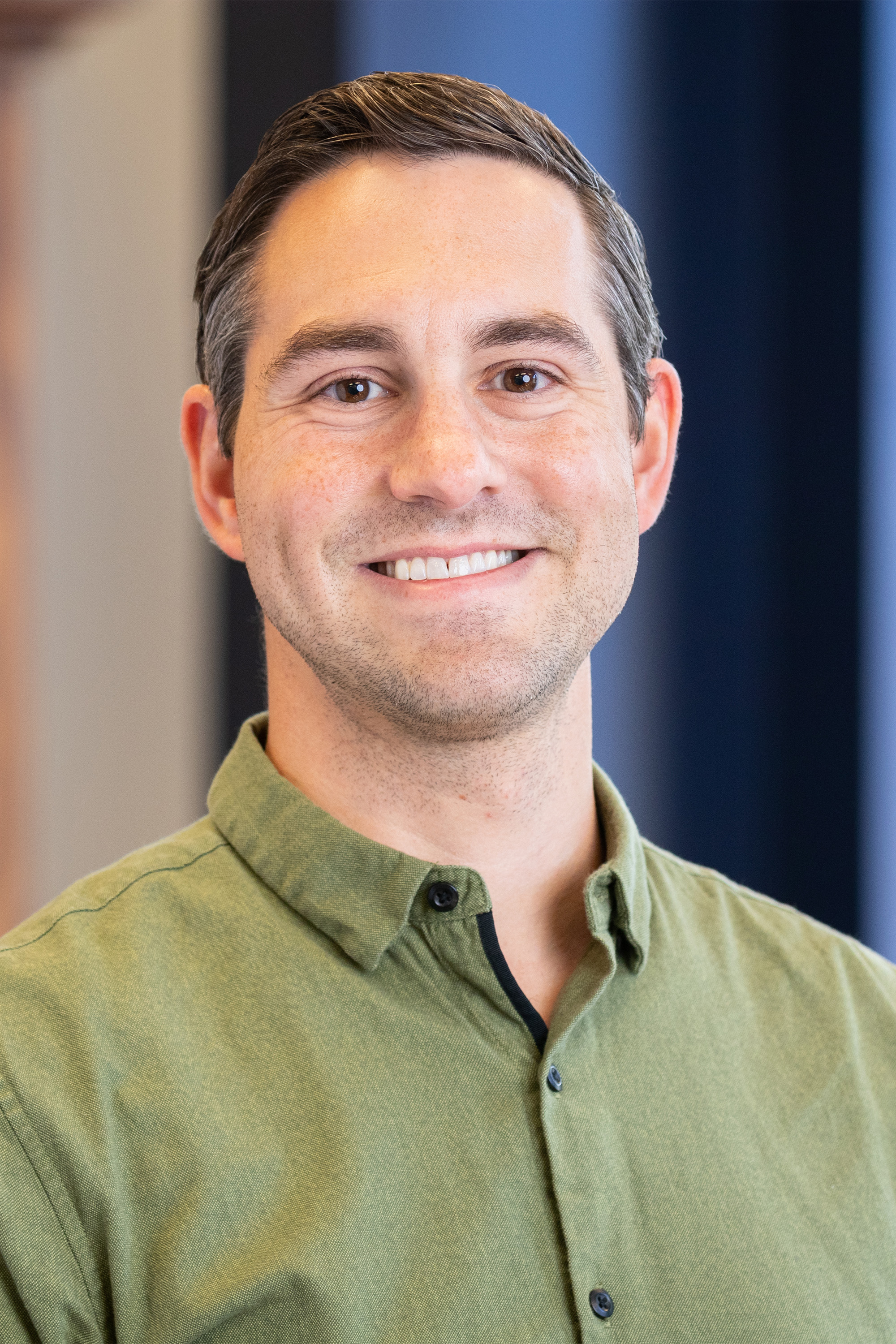
Michael Norris, associate professor of Chemistry, School of Arts & Sciences
Michael Norris and his students conducted a research project this summer that involved synthesizing new molecules capable of reversing combustion and converting waste carbon dioxide into usable fuel.
“Ideally, capturing and converting CO2 means no new CO2 would be emitted. You could burn a fuel, capture the CO2 produced, and then recycle the CO2 back into fuel,” Norris said. His lab has successfully converted CO2 into methanol, which can be reused as an energy source.
“Liquid fuels are easy to store and are ready when you need them. Methanol is a liquid that could be used at large scale to run power plants because it’s easy to burn and generate electricity. This would work with current mature technologies,” Norris said. “With a bit more research, methanol could also be used in fuel cells that could power things like cars and trucks.
The research for this project will continue this fall, along with another focused on developing new molecules that can be remotely activated to deliver cancer drugs, thereby helping to reduce side effects from chemotherapy. Norris said his students do all the lab work, running every experiment and collecting all the data.
“My biggest goal for my research is to get students excited about science and help them understand how they can make an impact,” Norris said. “Science is a large and collaborative process, so the hope is we contribute small pieces to a much larger whole.”

